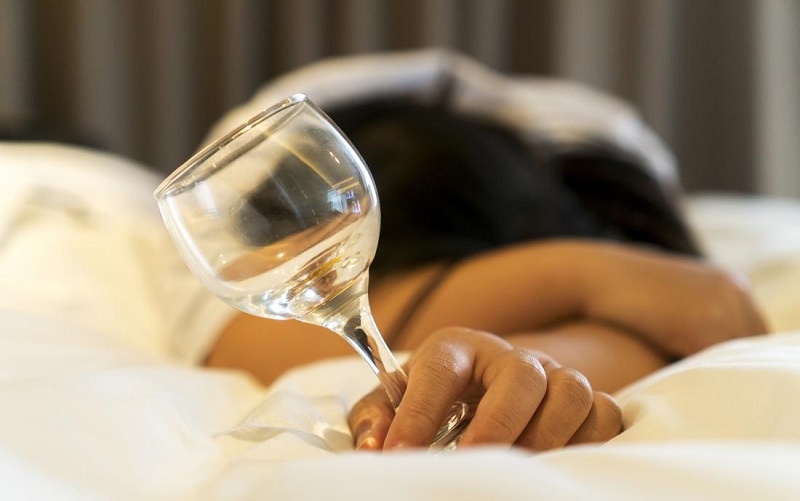Alcohol is one of the most controversial products of relatively common consumption. Alcohol side effects can be harmful to many elements of our body as we often cannot differentiate the alcohol effects on sleep disorders. Only feel the supposedly positive effects that we notice with the harmful effects it produces inside.
With insomnia, alcohol has a double effect on our body that evolves over time. By not knowing in depth its consequences we let it act hoping that it happens alone, based mainly on our experience and what we have learned by intuition.
In below, some of the alcohol effects on sleep disorders:

The paradoxical effect of alcohol on sleep
In order for us to understand how alcohol affects our rest, we must first know a little about the phases of the dream. In basic terms, there are two main stages of sleep which are affected by alcohol: the REM phase (rapid eye movement, phase of rapid eye movements) and the NREM phase (no rapid eye movement). The NREM phase occurs approximately in the first half of the sleep cycle, leaving REM for the second half where deep sleep is included.
With this idea in mind is when we can move on to the paradoxical effect of alcohol. In the first phase alcohol favors sleep, quickly falling asleep. It is not strange that we have lived it or that we know people who when drinking too much suddenly fall asleep. Reduce the latency to sleep us can even occur in just seconds so many people who have difficulty sleeping resort to alcohol more or less constantly.
Unfortunately here comes the REM phase, damaged by alcohol. When we drink, we usually notice that our sleep is altered, waking us up in the middle of the night without a feeling of rest. Beyond the hormonal effects that alcohol has do not allow us to achieve deep sleep. It will make less refreshing and we find ourselves sleepy throughout the day.
In short: we fall asleep faster but it is a dream of lower quality and duration. Although drinking alcohol sporadically will not cause our sleep to be altered in a serious way but making it normal that alcohol effects on sleep can lead to sleep disorders.

Sleep disorders effects by alcohol
Unable to reconcile a restful sleep, we find two main disorders: insomnia and narcolepsy. Although they do not necessarily have to be produced by alcohol, they are very affected by consumption and can become chronic if our intake becomes constant over time.
The most common is insomnia. We do not get a good night’s sleep, waking up frequently at night without getting a proper rest at any time. It is easy to go back to sleep but it will be even easier to wake up abruptly. If we add an obligation as usual as having to get up early to work insomnia is virtually assured.
In the case of narcolepsy, it is necessary to clarify that it is not pure narcolepsy as such, which occurs mainly by genetic influence. The effects of narcolepsy in the form of fatigue throughout the day and constant drowsiness are what alcohol produces when taken regularly. We cannot rest properly, a difficult sensation to eliminate to which we curiously seek solutions by taking substances such as alcohol itself.
Other related alcohol effects on sleep can be nervousness or anxiety. Collateral with its influence on the phases of the dream, it is the variety of effects of alcohol that makes our dream so affected. If we also add the psychological consequences of consuming alcohol for a long time it is easy to conclude that we should never resort to it to help us in our sleepless nights.
Did you know…
In times when alcohol moves around the social controversy mysteriously suddenly appear voices that defend its therapeutic effect, including its benefits to sleep better. Of course, the interest behind is at the discretion of each one. Do not let the alcohol effects on sleep in order to get a healthy lifestyle.
You may also like to read this blog.


